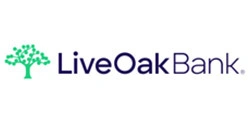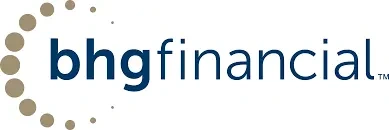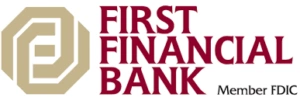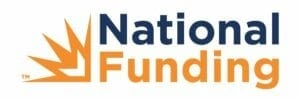Financing Options for Pharmacies
Many communities rely on independent pharmacies to meet their unique needs, although keeping profits up against the big-name competitors can be tough. Pharmacy loans can help these independent pharmacies access the capital they need to keep their small businesses afloat.
Here is what you need to know about pharmacy costs and how to find pharmacy financing that fits your company’s needs.
How much does it cost to run a pharmacy?
Opening a pharmacy can cost between $400,000 to $600,000 or more after adding up startup costs like registering your business, creating a website, hiring staff and purchasing essential equipment and inventory. Additionally, average operating expenses could run around $143,500 a month for rent, payroll, utilities, business insurance and supplies.
While independent pharmacies have the potential to earn more than $3 million in annual revenue, your profit will depend on factors like your available services, inventory costs and staffing needs.
How pharmacy loans can help your business
Despite having a solid business plan and a hard-working team in place, you might struggle to make ends meet. If your pharmacy costs exceed your revenue, a small business loan could provide up to $5 million to help with the following business expenses:
- Hiring and training staff
- Payroll services
- Purchasing inventory and supplies
- Leasing or buying equipment
- Rent and utilities
- Renovations and expansions
- Business insurance
You could also use pharmacy financing to acquire an existing pharmacy or expand your services.
Types of financing for pharmacy owners
When searching for financing for your pharmacy business, consider the following types of small business loans.
SBA loans
Backed by the Small Business Administration (SBA), SBA loans provide funds up to $5 million or more with capped interest rates and flexible repayment terms. The popular SBA 7(a) loan can help pharmacy owners access the capital they need to tackle a range of business expenses.
Depending on the loan type, the SBA may require collateral, a down payment or a personal guarantee. You can also consider an SBA 504 loan to cover real estate purchases or an SBA microloan to fund smaller amounts.
Business line of credit
A business line of credit can provide flexible funding on an as-needed basis. Like a credit card, you can borrow up to a set credit limit, repay the debt and borrow again. While you only pay interest on withdrawn amounts, some lenders charge monthly or annual maintenance fees.
High-credit-score applicants could receive credit limits up to $250,000 with competitive interest rates, while low-credit-score borrowers may receive a lower limit with higher rates. Startups can consider applying for a secured business line of credit to help build their business credit profile.
Term loans
Short-term business loans can provide up to $1.5 million to help pharmacy owners meet daily or low-cost needs. Repayment terms are typically between three to 24 months.
If you need more funds for extended projects, long-term business loans go up to $5 million with repayment terms between three and 10 years. While long-term financing generally has lower interest rates, you can expect a slower funding timeline.
Inventory financing
Pharmacy inventory is one of the top expenses listed on a pharmacy owner’s business budget. If you need help covering this expense, inventory financing can provide up to $400,000 with revolving funds and fast funding times.
Since the inventory typically acts as collateral to secure the loan or line of credit, lenders can usually finance up to 80% of the inventory value. Inventory financing may come with high interest rates and short repayment terms, requiring daily or weekly repayments.
5 pharmacy loan options for your business
You can apply for pharmacy lending through traditional banks, credit unions and online lenders. Here are five small business lenders offering pharmacy loans with competitive rates and flexible repayment terms.
| Lender | Max. loan amount | Term length | Min. credit score | Time in Business | |
|---|---|---|---|---|---|
 | $15 million | Up to 300 months | 680 | 36 months | |
 | $6 million | Up to 300 months | 680 (recommended) | 24 months (recommended) | |
 | $500,000 | Up to 144 months | 660 | Not disclosed | |
 | $5 million | Up to 300 months | 680 (recommended) | 24 months (recommended) | |
 | $500,000 | 4 to 24 months | 600 | 6 months |
Live Oak Bank
Live Oak Bank is a leading SBA-preferred lender specializing in helping pharmacists purchase commercial real estate, acquire new pharmacy businesses or refinance existing debt. Loans go up to $15 million with terms of up to 25 years. Interest rates and terms will vary based on your personal credit score and business history. Like other SBA loans, the approval and funding process can take 45 to 60 days.
You can access Live Oak Bank’s Resource Center for guidance on business products, marketing tips and trips, customer spotlights and more.
Ameris Bank
Ameris Bank is an SBA-preferred lender providing up to $6 million in in-house funding to help pharmacy owners start, expand and grow their companies to new levels. Funds can pay for working capital expenses, real estate acquisition, equipment costs or debt refinance.
In addition to SBA loans, Ameris Bank offers a range of small business solutions like business checking accounts, merchant services, payroll and HR support and fraud prevention tools.
BHG Financial
BHG Financial is a healthcare-focused online lender providing pharmacy loans from $20,000 to $500,000 with no collateral required. You could use the funds to purchase medical equipment, renovate your pharmacy or pay off your student loan debt.
With loan approvals typically taking 24 hours and funding in as few as three days, BHG Financial could be an ideal choice for pharmacy owners looking for fast business loans. Furthermore, there’s no impact on your credit score when you apply.
First Financial Bank
First Financial Bank is an SBA-preferred lender offering affordable pharmacy loans with competitive rates, lower down payments and extended repayment terms. Whether you want to acquire a pharmacy business, refinance existing business debt or purchase inventory, First Financial can help with a support team that guides you from start to finish.
SBA loan amounts go up to $5 million with variable or fixed interest rates, plus SBA fees from 0% to 2.77%.
National Funding
National Funding is a private lender offering speedy online loans to help pharmacy business owners provide a stellar experience for their customers. With a streamlined application process and a dedicated Funding Specialist to help with the overall loan process, your pharmacy could access up to $500,000 in working capital to cover daily operational expenses.
Newly established pharmacies with at least six months of business history could apply for a startup business loan with National Funding.
How to open a pharmacy
There are copious logistics to consider when planning to start or buy a pharmacy. While the exact steps will vary based on your business model, expertise and state requirements, here are some general tips on how to start a small business.
Create a business plan
Your business plan serves as a roadmap for your new pharmacy business, helping identify your company’s strengths and potential pitfalls before getting started. Many lenders and investors will likely require a solid business plan before approving your loan application.
File legal paperwork.
While requirements for starting a pharmacy vary by state, here’s a general idea of the legal hoops you might need to jump through:
- Register your business with the appropriate government agencies.
- Pick your business entity, such as sole proprietorship, general partnership, corporation or limited liability company (LLC).
- Get an employee identification number (EIN) for tax purposes.
- Fill out any applicable business licenses and permits.
Check with the Harbor Compliance Pharmacy Licensing and your state’s Board of Pharmacy for more guidance on legal requirements for opening a pharmacy in your state.
Organize your business finances.
Make sure your business finances are separate from your personal finances. You can start by opening a business bank account and business credit cards, as well as using a bookkeeping service to keep track of cash flow and expenses.
Now’s a good time to track your business deductions so you’re ready to hit the ground running when tax season rolls around.
Find a location.
Research areas where pharmacies are in high demand, paying attention to the store’s potential visibility and accessibility. Weigh the pros and cons of renting versus purchasing a space with a commercial loan to see which could be the better option for your pharmacy.
Fund your pharmacy.
Since prescription sales depend on what insurance companies are willing to pay, your pharmacy’s cash flow may be inconsistent. Pharmacy financing can help bridge any financial gaps in your budget to help keep profit margins up. However, shop around to ensure you receive the best business loan interest rates and terms for your pharmacy business before signing the dotted line.
And if a pharmacy loan isn’t right for you, consider alternative funding methods like GoFundMe for business or bootstrapping your startup business. You could also search for small business grants that cater to the healthcare field.
Market your business.
Spreading the word about your new pharmacy and what makes your business unique can help draw customers in. Launching a social media advertising campaign can help you reach a wider audience, letting the community know about fun events like an open house day or holiday discounts.
You can also consider offering niche services that may not be available from larger chains, like same-day home delivery, immunizations, medication therapy management and compounding to provide custom medication.
Compare business loan offers


